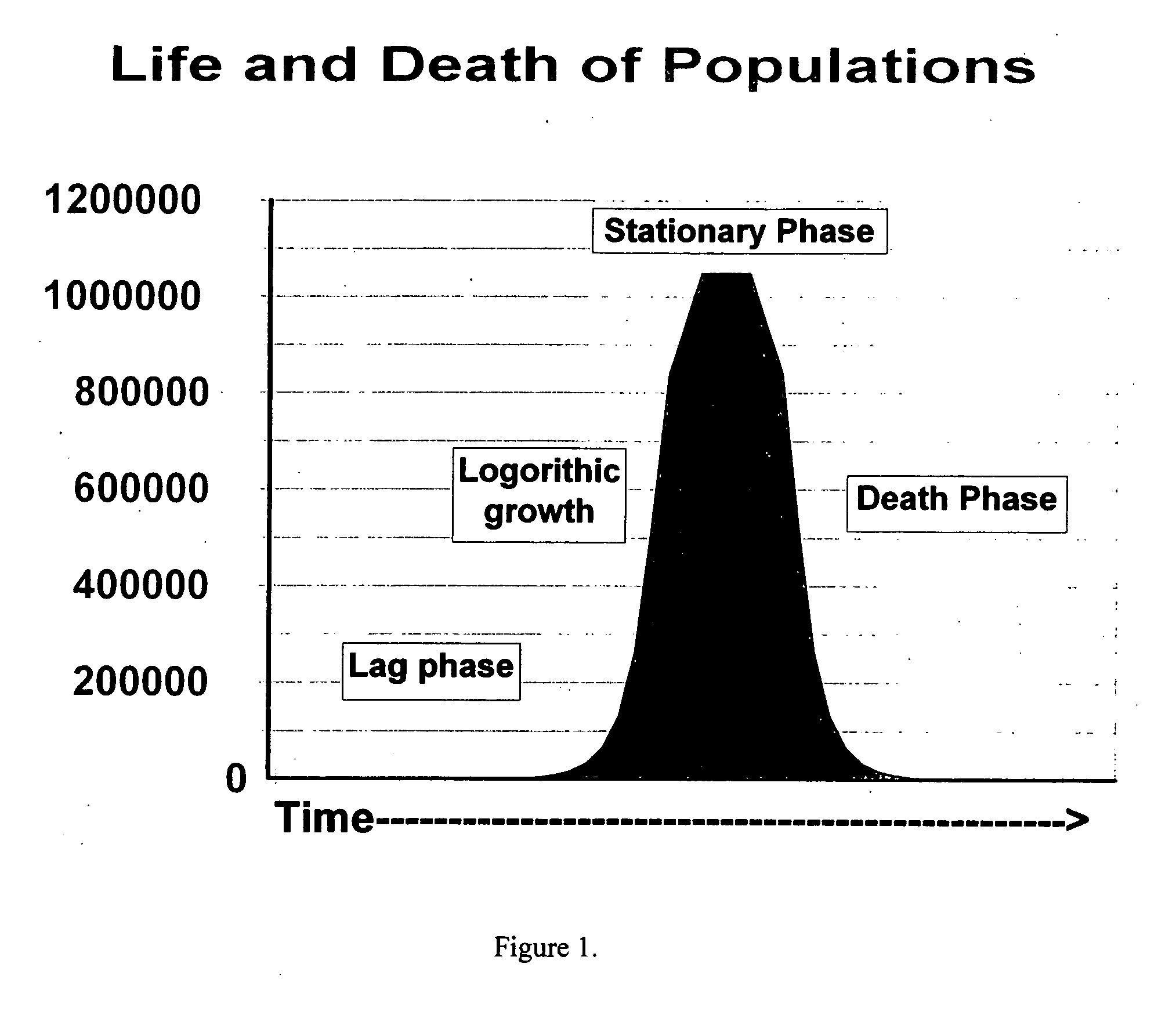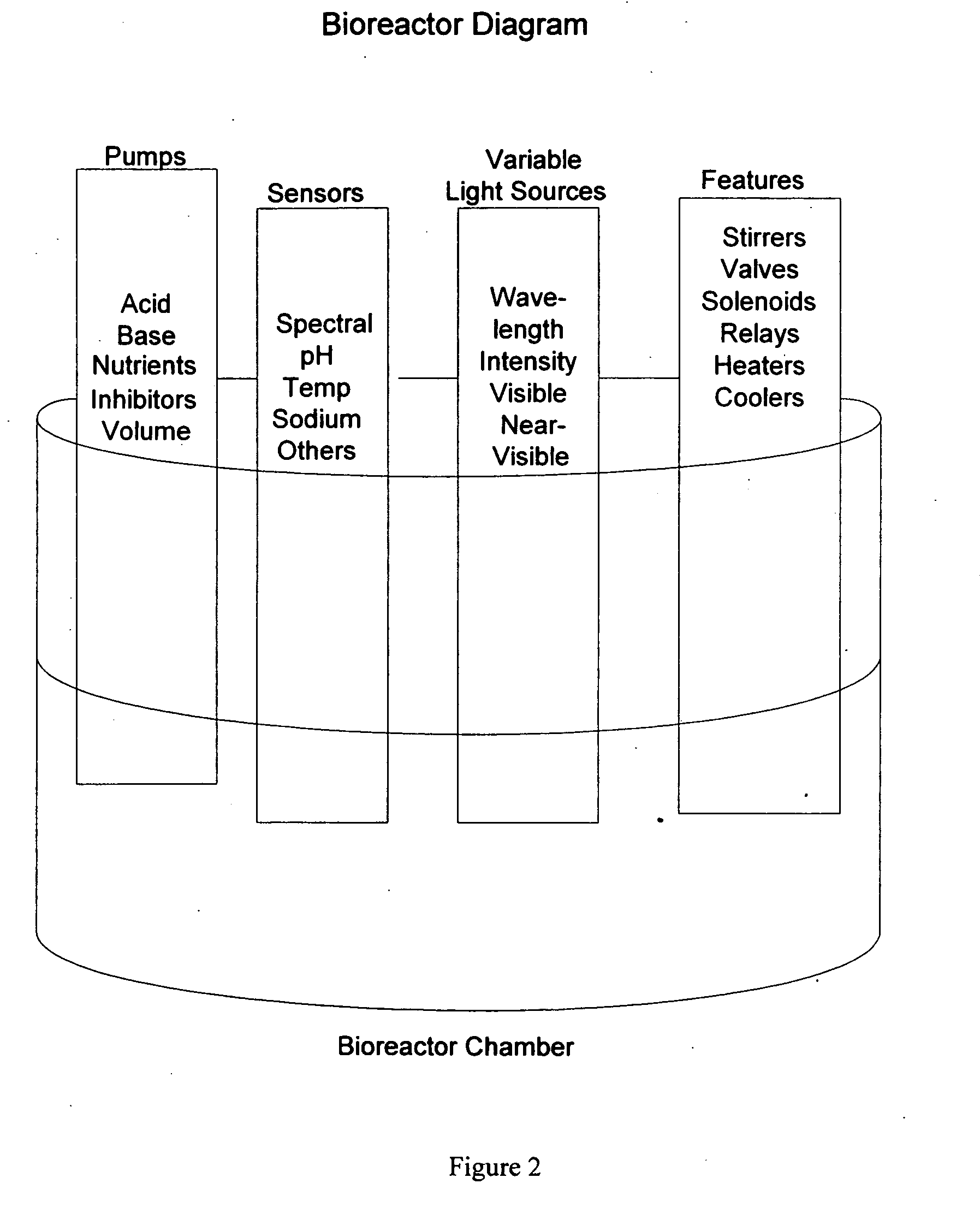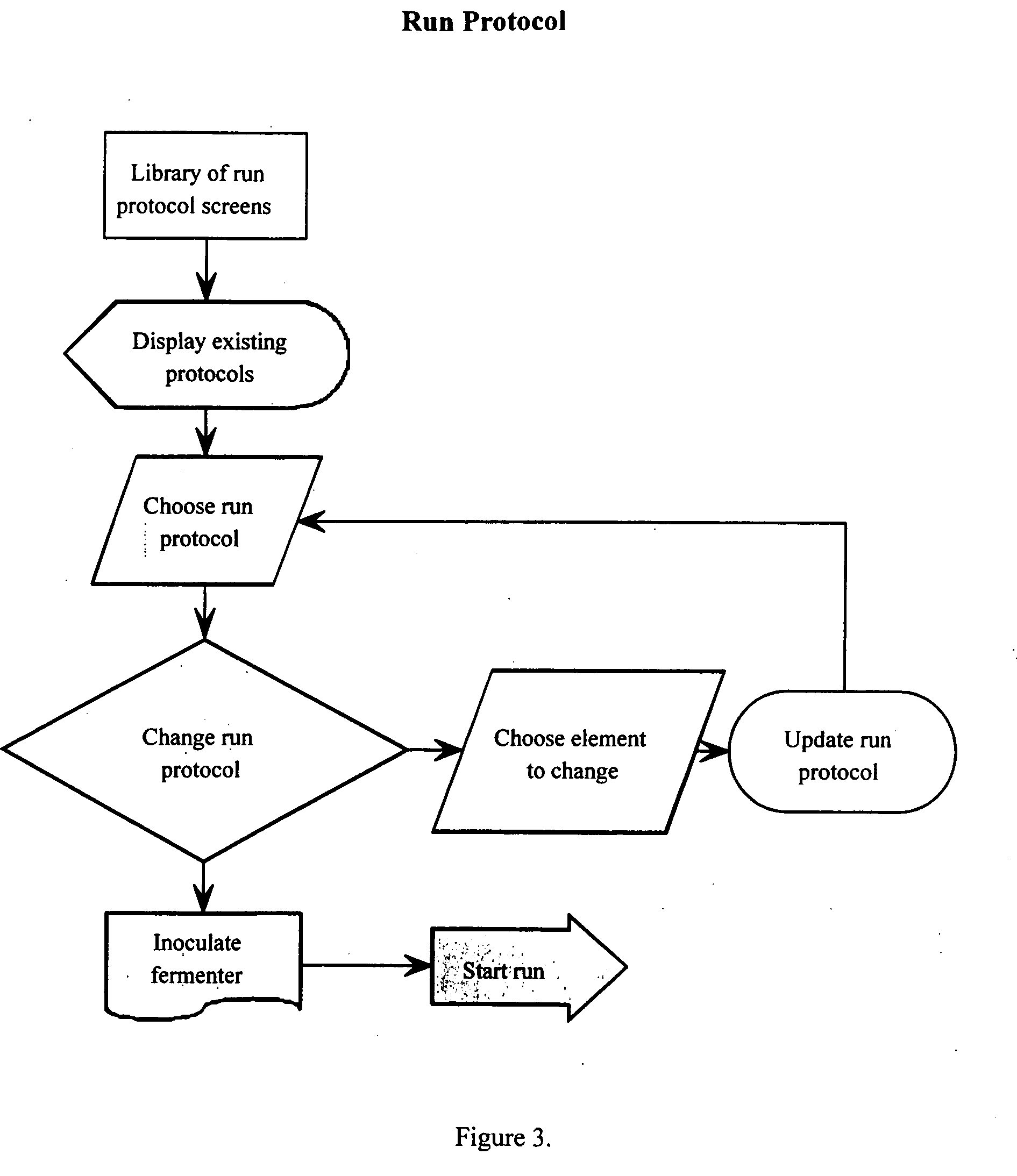Decision-making spectral bioreactor
- Summary
- Abstract
- Description
- Claims
- Application Information
AI Technical Summary
Benefits of technology
Problems solved by technology
Method used
Image
Examples
examples
[0078] Optimum and maximum temperature: FIG. 11 illustrates the determination of the optimum and maximum growth temperature of a culture of the dairy bacterium, Streptococcus lactis. The time span of the graph is two hours. The heater was shut off after reaching the maximum growth temperature. The finding of optimum and maximum growth temperature occurred in considerably less than two hours as indicated by the clear maximum inflection point in the rate of growth. As the temperature drifted down, the growth rate slowly recovered. The effective maximum temperature is the temperature at which the growth rate becomes negative, i.e., the death of cells begins to exceed the growth. While cells continue to grow, the net effect of maintaining the temperature at any higher will lead to the death of all cells. The graph, for the first time, illustrates the determination of a much more precise optimum and maximum growth temperature and at considerably less cost in materials and especially labo...
PUM
 Login to View More
Login to View More Abstract
Description
Claims
Application Information
 Login to View More
Login to View More - R&D
- Intellectual Property
- Life Sciences
- Materials
- Tech Scout
- Unparalleled Data Quality
- Higher Quality Content
- 60% Fewer Hallucinations
Browse by: Latest US Patents, China's latest patents, Technical Efficacy Thesaurus, Application Domain, Technology Topic, Popular Technical Reports.
© 2025 PatSnap. All rights reserved.Legal|Privacy policy|Modern Slavery Act Transparency Statement|Sitemap|About US| Contact US: help@patsnap.com



